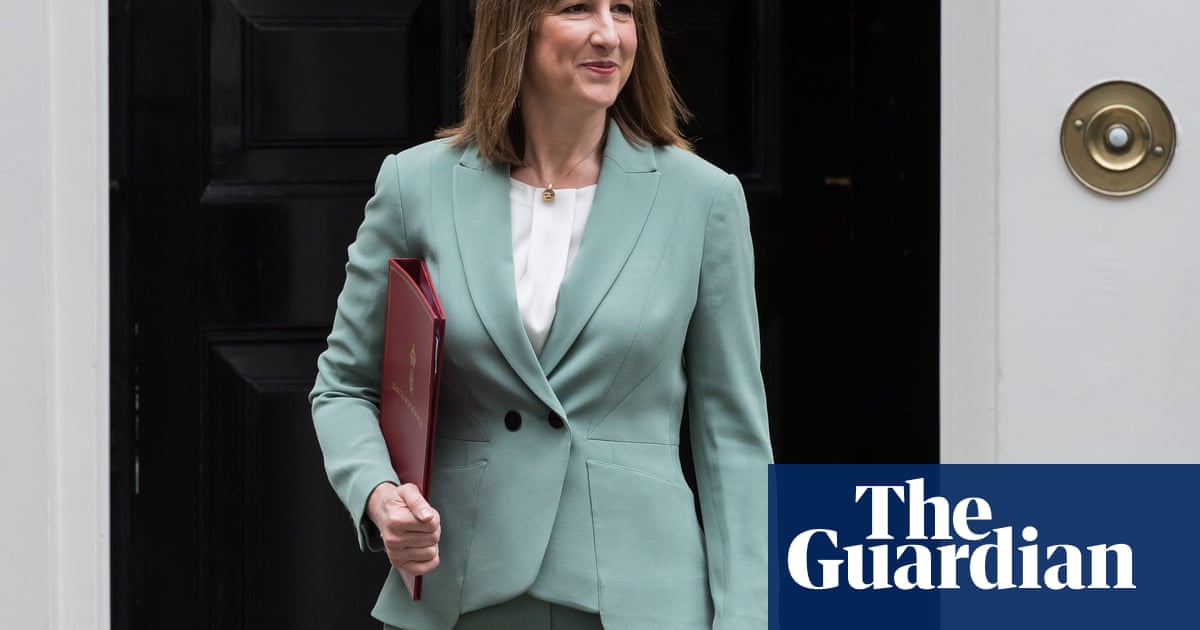Rachel Reeves usually avoids any mention of the word “austerity” in connection with her fiscal policies, but on Wednesday, she decided to tackle the argument head on.
“In this spending review, total departmental budgets will grow by 2.3% a year in real terms,” she told MPs as she announced the next stage of her spending review.
“Compare that to the Conservatives’ choice of austerity …Austeritywas a destructive choice for both the fabric of our society and our economy, choking off investment and demand and creating a lost decade for growth, wages and living standards.”
The chancellor argues that her decision to lift departmental budgets by 2.3% on average over the course of this parliament shows this cannot be compared with the coalition period, when spending fell by 2.9% on average.
Some departments are faring particularly well. The Department of Health and Social Care will receive 2.8% more on average over the course of the parliament, taking its budget from £189bn in 2023-24 to £246bn by 2028-29.
But focusing only on this week’s announcement, which covers the three years from 2026-27, the settlement looks much tighter, with departmental budgets rising only 1.5% on average.
Taking out certain big-ticket items of government spending, the situation looks tougher still. According to the Resolution Foundation, everything outside of health, defence, education and overseas aid will fall by 1.3% on average – a total of £2.4bn in cuts.
Some departments are being particularly badly hit, including the Home Office, which is facing 1.4% annual cuts over the next three years; and the environment department, the budget of which will drop 2.3% each year on average.
Sharon Graham, the general secretary of the Unite union, said: “Spending cuts will be seen as austerity; those are the facts.Labourneeds to pick up the pace on change, otherwise it will be stuck in the political slow lane while other voices get louder.”
The chancellor says that the significant rise in capital spending will help offset the impact of reduced day-to-day spending for some departments. Better technology and equipment will help make processes more efficient, for example in the NHS where new scanners and testing machines should help ease the burden on doctors and nurses.
Economists also point out that the growth in day-to-day spending is still set to outstrip even the OBR’s relatively bullish growth forecasts.
Paul Johnson, the director of the Institute for Fiscal Studies, said: “This is not a period of austerity. This is a long period during which spending will be growing faster than the economy which, given current OBR estimates – which are more optimistic than most – is set to grow by 1.5% a year.”
Reeves faces two main problems, however, when persuading the public they are not experiencing austerity. One is that her plan mostly unpicks Conservative spending plans that were never realistic in the first place; without those there would have been significantly deeper cuts pencilled in.
Sign up toBusiness Today
Get set for the working day – we'll point you to all the business news and analysis you need every morning
after newsletter promotion
Andy King, an economist and former chief of staff at the Office for Budget Responsibility, said the £400bn uplift outlined by Reeves was “basically the price tag for taking implausible out of the spending plans”.
He said: “Was it a spending spree? Not really. Was it austerity? Not really. It looks like a pretty conventional and sensible way of allocating the spending envelope.”
The second is that unlike during the previous Labour government, Reeves is increasing overall departmental budgets after years of cuts. Local government, for example, will receive average real-terms rises of 1.1% a year over the next three years. But at the end of that period its central government funding will be 50% lower than it was in 2010.
For those on the left, those previous cuts are even more reason to open the spending taps now, even if it means raising taxes at the autumn budget to do so.
Theo Harris, an economist at the NewEconomicsFoundation, said: “To deliver the change people voted for, the government should free itself from its self-imposed fiscal rules, recognise the value of social spending and be willing to tax wealth fairly. This may not be austerity, but it doesn’t look like the start of a decade of renewal.”
Those close to Reeves, however, point out that she has already announced one of the biggest tax-hiking budgets in recent history to fund an immediate splurge in government spending – something Labour supporters have long called for.
“In place of decline, I choose investment,” Reeves said on Wednesday. “These are Labour choices.”
